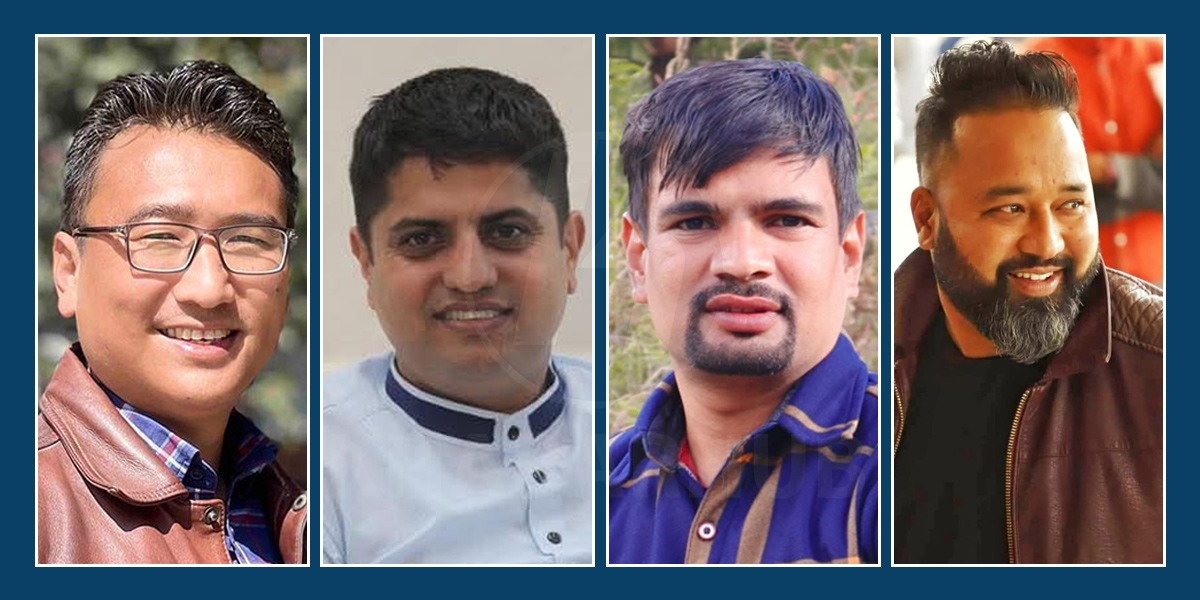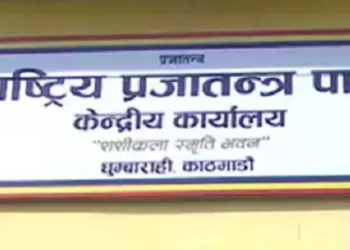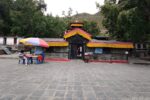KATHMANDU: The election for the Free Students Union (FSU), which addresses academic concerns and advocates for students’ social liberation, justice, rights, and dignity, is fast approaching.
According to the schedule released by Tribhuvan University (TU) Student Welfare Council, the election is set for March 18.
The election date, originally scheduled for February 27, was delayed by one month due to various reasons.
This election, considered a platform for producing future leaders, has been a key player in various movements for the past three to four decades.
However, in recent times, party interference has delayed the student election process.
With the election date now approaching, only 23 days remain until the FSU voting day, which is seen as a “mini-election” for the political parties.
Student organizations are actively preparing for it. However, internal conflicts within some student organizations pose a risk of further delays.
Tribhuvan University (TU) has a total of 1,040 affiliated campuses, and the FSU elections will be held across all of them simultaneously.
After TU announced the election schedule, the FSU presidents of two campuses padlocked the offices of the Tribhuvan University Education President and the Head of the Student Welfare Council, protesting that the election date was set without consulting the student organizations.
The padlocks, installed by Padmakanya Campus FSU President Jyoti Paneru and ASCOL FSU President Prem Jaisi, remain in place. They have also accused the Vice Chancellor of financial irregularities related to the locks.
Earlier, the TU Executive Council had issued a procedure stating that the term of the FSU Executive Committee elected in 2079 BS would automatically end in March.
The student leaders have demanded an amendment to this procedure, but TU maintains that the focus should be on implementing a solution rather than changing an issue caused by the students themselves.
The student leaders responsible for the locks belong to an organization affiliated with the Nepali Sangh Akhil Krantikari.
Discussions between three organizations to resolve padlocking issue
On Sunday, leaders from the three major parties—Nepali Congress, CPN-UML, and Maoist Center—along with student organization leaders, held discussions in Baluwatar.
Nepal Students’ Union President Durjang Sherpa confirmed that talks were focused on facilitating the removal of the locks and ensuring a timely election.
Sherpa represented the Nepali Students’ Union, with Congress Joint General Secretary Kishore Singh Rathore, ANNFSU President Samik Badal, UML Standing Committee member Bhanubhakta Dhakal, and other leaders from the Maoist Center also present.
The leaders agreed to hold further talks with the Tribhuvan University Student Welfare Council and find a solution that ensures the election is held on time.
According to Sherpa, the three organizations share a common goal of conducting the election peacefully and incorporating the views of all stakeholders.
“We agreed to initiate talks today to resolve the dispute and open the locks. The three organizations are united in wanting the elections to take place on schedule,” Sherpa told Khabarhub.
“We will also hold discussions with Tribhuvan University and engage with the student leaders involved to reach a consensus.”
Meanwhile, ANNFSU President Badal expressed optimism about holding the election on time.
However, he acknowledged that various individuals and groups might try to influence the process as the election approaches.
“The big student organizations are united for timely elections,” Badal said.
“ANNFSU has been preparing from the start to ensure the elections happen on time. NSU and ANNFSU-R also support this. Last year, delays in the student movement were caused by a lack of elections. This time, discussions have been held to ensure it happens on time.”
Representatives from the Unified Socialist, Rastriya Prajatantra Party Student Organization, JSP, and other student groups affiliated with JSP Nepal did not participate in the meeting.
Meanwhile, according to TU officials, discussions are ongoing to resolve the padlock situation.
Pashupati Adhikari, head of the Tribhuvan University Student Welfare and Sports Council, reiterated that the two-year term of SBU office bearers, as outlined in the red book, should be respected.
“The student organization is the backbone of the party. It establishes culture and strengthens party politics. We are not forming a central alliance like the FNJ and other organizations,” Badal said.
“We will interpret the election process based on the red book,” Adhikari said, asserting that there is no reason to delay the upcoming election.
He also emphasized that the student leader opposing the election should not have taken such actions.
Despite not being in his office, Adhikari clarified that the election process has already progressed significantly.
According to the latest data, elections are set to take place in 62 of the 64 affiliated campuses across Nepal.
Tribhuvan University (TU) has a total of 1,040 affiliated campuses, and the FSU elections will be held across all of them simultaneously.
While the elections were initially scheduled for every two years since 2036 BS, regular elections have not occurred since 2065 BS.
After the elections held on Chaitra 15, 2073 BS, following an eight-year gap, the most recent election was on Chaitra 5, 2079 BS.
Currently, the ruling coalition—comprising Congress, UML, and smaller parties—runs the government, and this has led to speculation about a potential alliance in the upcoming FSU elections, similar to the recent Federation of Nepali Journalists (FNJ) elections.
Durjang Sherpa, president of the Nepal Students’ Union (NSU), which is affiliated with Nepali Congress, confirmed that NSU is preparing to contest the elections alone.
“Our plan is to hold individual elections across campuses nationwide. This was also mentioned in the Sunday meeting,” Sherpa told Khabarhub.
“We will not form any alliances from the central level. Any local alliances will be formed based on campus needs, but no central alliance will be made.”
Similarly, Samik Badal, president of the UML-affiliated ANRFSU, echoed that both the party and the student organization are not pursuing a central alliance for the elections.
“The student organization is the backbone of the party. It establishes culture and strengthens party politics. We are not forming a central alliance like the FNJ and other organizations,” Badal said.









Comment